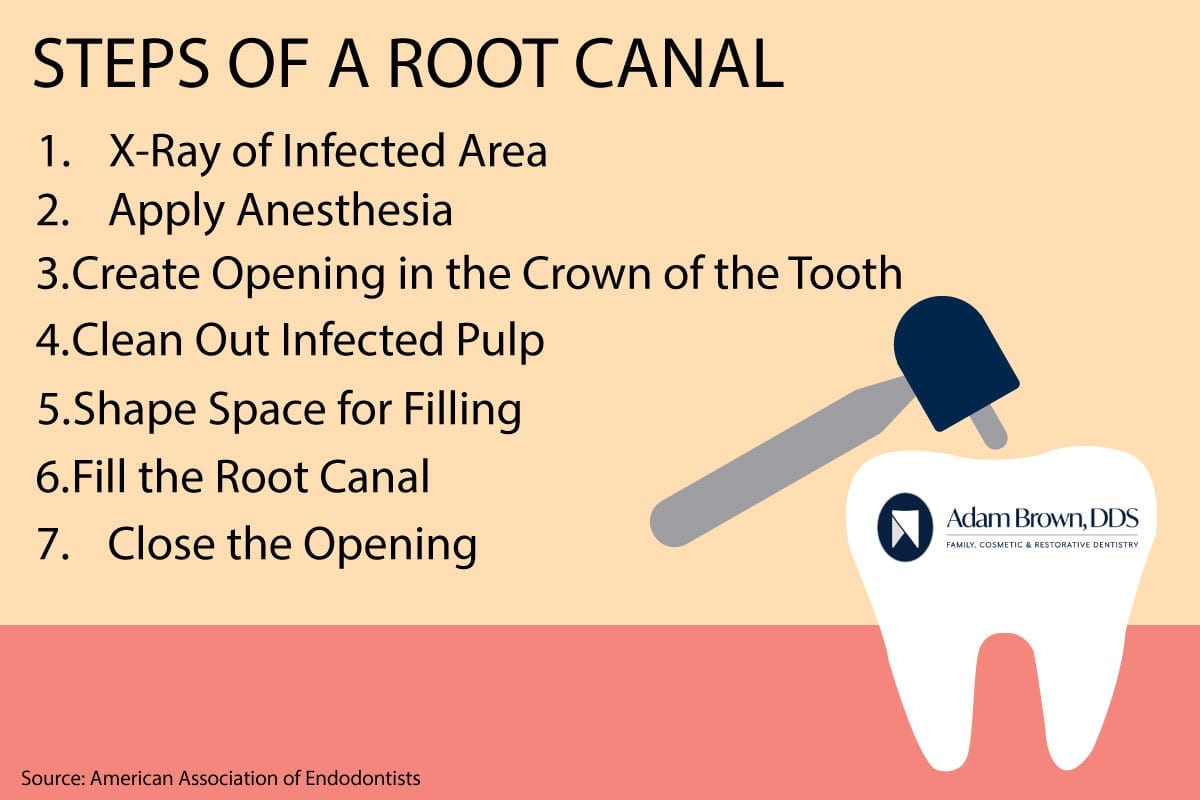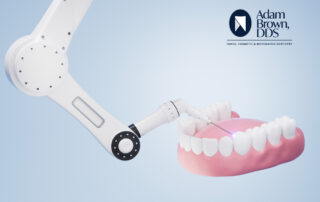Endodontia
(Root Canal Therapy)
Utilizing the latest in 2D Digital Imaging (xrays), rotary instrumentation, and sedation even the most apprehensive patient can enjoy quick, painless, and predictable results in saving their teeth.
Root Canals have a pretty scary reputation. At Adam Brown, DDS, Dr. Adam Brown strives to make this procedure as pain free and successful as possible.
Despite their negative image, root canal procedures (endodontic treatment) save teeth that have been infected and in the past would have been pulled. The procedure is usually spread over 1 to 3 appointments. A root canal is needed if the nerve, pulp and canal beneath the tooth have become infected. This usually happens because of a deep cavity or a crack in the tooth.
Dental pain relief developed from the humble beginnings of ether (a pleasant-smelling colorless volatile liquid that is highly flammable) to laughing gas (nitrous oxide) and more recently from ethyl chloride (a gas or volatile liquid) to Procaine (commonly known as Novocaine).

Some signs that you might need a root canal include:
- Severe pain when chewing with a tooth or applying pressure to it
- Continual pain or sensitivity to heat or cold
- Discoloration of the tooth
- Swelling and tenderness of the gums surrounding the tooth
- A persistent or recurring pimple on the gums.
If a diseased tooth is suspected, we begin by x-raying the mouth to see the shape of the root canals and to look for signs of infection. If an infected nerve is the problem, we apply anesthesia and place a rubber dam around the infected tooth to keep it dry and free of saliva. We then clean, shape and fill the canal or canals often in one visit.
If you suspect you may have an infected tooth, please call Carolina’s Dental Choice in Monroe at (704) 289-9519 to arrange an appointment. When an infected pulp is left untreated, the long-term damage can extend to other teeth, bone and even other parts of the face and head. But with a successful root canal procedure and proper hygiene, a root canal can remain healthy for the rest of your life.


